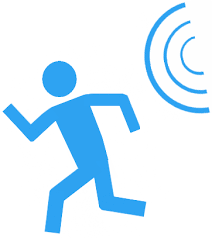 Have you ever heard a noise that caused you immense anxiety, frustration, or triggered an emotional reaction? Do you frequently get frustrated at sounds in which they seem to have no type of effect on other people? If so, you may be dealing with a rare syndrome known as misophonia. According to the International OCD Foundation, misophonia is defined as the hatred or dislike of sound, but specifically certain sounds are more triggering than others. This syndrome can cause people to lead a very difficult life, as there are sounds everywhere. This makes the world a very overwhelming place for individuals suffering from misophonia. For more information about this rare syndrome, such as symptoms and treatments, keep reading below.
Have you ever heard a noise that caused you immense anxiety, frustration, or triggered an emotional reaction? Do you frequently get frustrated at sounds in which they seem to have no type of effect on other people? If so, you may be dealing with a rare syndrome known as misophonia. According to the International OCD Foundation, misophonia is defined as the hatred or dislike of sound, but specifically certain sounds are more triggering than others. This syndrome can cause people to lead a very difficult life, as there are sounds everywhere. This makes the world a very overwhelming place for individuals suffering from misophonia. For more information about this rare syndrome, such as symptoms and treatments, keep reading below.
Are All Forms of Misophonia Alike?
One common misconception about misophonia is that there is a single type of misophonia. The truth behind it is there are many kinds of misophonia, as all people are different. Because of this difference in individuals’ mindsets, backgrounds, and upbringings, all experiences vary. No two people suffering from misophonia have identical symptoms. While some may be more common among the population, others are purely individualized. The most common auditory triggers include dripping water, tapping, breathing, and chewing. Less common auditory triggers include the noise of a clock ticking and the low hum that comes from a specific type of lighting. Because not all forms of misophonia are alike, it is important to recognize the most common symptoms associated with the illness. Let’s take a look at some below.
Symptoms of Misophonia
Understanding the symptoms of misophonia is an important part of identifying whether you or someone you know may be suffering from this rare illness. As mentioned above, every person in this world is different and therefore all symptoms are not universal. While all symptoms may not appear in people the same way, there are various symptoms that exist to allow identification of misophonia. They include, but are not limited to, the development of anxiety, the urge to leave your location when a specific noise occurs, outbursts of rage or panic induced by a specific noise, or the development of emotional distress. It is imperative to understand that levels of severity of misophonia vary greatly, and therefore these symptoms may be more prevalent in some compared to others.
Treatment Options
If you or someone you know are struggling with misophonia, you’ll be happy to hear that there are treatment options for you. There is an institute called the Misophonia Institute that lists plenty of treatment options for you. Currently, the most common treatment is known as Misophonia Management Protocol that involves incorporating a relaxing sound through behind-ear sound generators. These are said to help the individual learn to ignore their trigger sounds. At first, this treatment may seem non-useful as it does not eliminate the trigger itself, but long-term success is common. There are new upcoming treatments, too, such as hypnotherapy, that are still being tested. This involves being under hypnosis and having a hypnotist talk you through your syndrome. Keep in mind that there are plenty of other treatment options that may work well for you. Look through a comprehensive list of misophonia treatments here!
Find Treatment Today
If you believe you may be struggling from misophonia, it is important that you seek treatment today in order to begin feeling better and happier in life. If you avoid treatment, symptoms could continually increase leading to a very poor quality of life.
For a helpful misophonia treatment in New York City, contact Misophonia treatment specialist Steven Katz LCSW today for an appointment.
